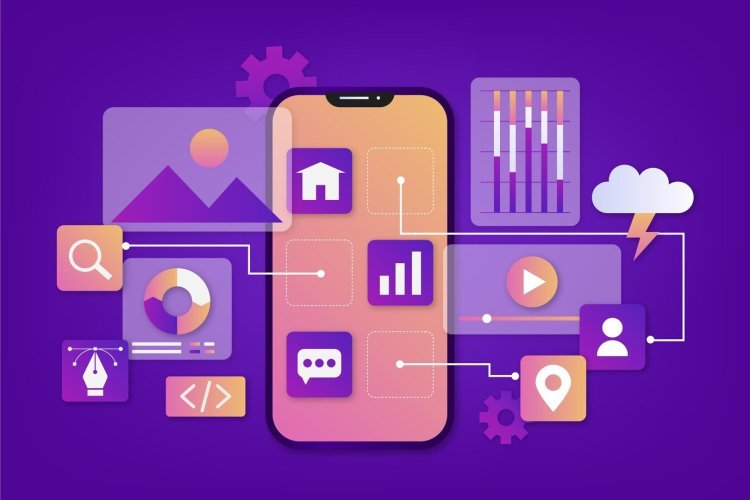The Cost of Developing a Mobile App in 2025: What to Expect

Mobile app development has become a crucial aspect of modern business strategy. From startups to large corporations, having a mobile app is often essential for reaching and engaging with customers. However, understanding the cost of developing a mobile app in 2025 is a critical consideration for businesses and entrepreneurs alike. This guide explores the factors influencing mobile app development costs and provides insights into what you can expect this year.
Key Factors Influencing Mobile App Development Costs
-
App Complexity The complexity of a mobile app is one of the most significant factors impacting its development cost. Apps can generally be categorized into three types:
- Simple Apps: These include apps with basic features, such as calculators or to-do lists. Costs for such apps range from $10,000 to $50,000.
- Moderately Complex Apps: These apps feature user authentication, real-time chat, or payment integration. Development costs can range from $50,000 to $150,000.
- Complex Apps: Apps with advanced functionalities like augmented reality, machine learning, or IoT integrations may cost upwards of $150,000.
-
Platforms (iOS, Android, or Both) Developing a mobile app for a single platform is generally more cost-effective than creating a cross-platform app. Native app development—targeting either iOS or Android—typically provides better performance but can double the cost if both platforms are chosen. Cross-platform frameworks like Flutter or React Native offer a cost-efficient alternative.
-
Design and User Experience (UX) A well-designed app with an intuitive user experience is vital for success. Custom designs can add significantly to the cost, especially if animations, transitions, and detailed graphics are required. In 2025, app design costs range from $5,000 for basic designs to $50,000 or more for custom, high-end UX/UI.
-
Development Team Location The geographical location of your development team significantly impacts costs:
- North America: $100–$250 per hour
- Western Europe: $80–$200 per hour
- Eastern Europe: $40–$100 per hour
- Asia: $20–$50 per hour
-
Third-Party Integrations Many apps require third-party integrations such as payment gateways, social media, or analytics tools. These integrations not only increase development complexity but can also add recurring subscription costs.
-
Maintenance and Updates After launch, regular maintenance and updates are essential for fixing bugs, improving security, and adding new features. Maintenance costs generally range between 15% and 20% of the initial development cost annually.
Estimating the Cost of Mobile App Development in 2025
Based on current trends, the cost of mobile app development can vary widely depending on the features, platforms, and complexity of the project. Below is a rough estimate:
- Small Business or Startup Apps: $10,000–$50,000
- Medium-Sized Enterprise Apps: $50,000–$200,000
- Large-Scale Enterprise or Custom Apps: $200,000+
Trends Affecting App Development Costs in 2025
-
AI and Machine Learning Incorporating AI and machine learning is increasingly becoming a standard practice in mobile app development. Whether it’s personalized recommendations, chatbots, or predictive analytics, these technologies can add $10,000 to $50,000 to the development budget.
-
Augmented Reality (AR) and Virtual Reality (VR) The popularity of AR and VR technologies, driven by industries like gaming, retail, and real estate, means more apps are integrating these features. Developing AR/VR capabilities can add $50,000 or more to the project cost.
-
5G Technology With the widespread adoption of 5G, apps are being developed to leverage faster speeds and lower latency. Optimizing for 5G can require additional development efforts and costs.
-
Sustainability and Green Apps Users are increasingly demanding sustainable and eco-friendly app practices. Developing apps with minimal resource usage and energy-efficient features may require specialized expertise, potentially increasing costs.
How to Optimize Mobile App Development Costs
-
Define Clear Requirements Before starting, have a clear roadmap of your app’s features and functionalities. This will prevent costly changes during development.
-
Start with an MVP A Minimum Viable Product (MVP) allows you to launch with core features, test the market, and gather feedback. This approach can significantly reduce upfront costs.
-
Choose the Right Development Partner Whether hiring a freelance developer, an in-house team, or outsourcing to an agency, ensure they have experience in mobile app development. Look for cost-effective yet reliable options based on their portfolio and reviews.
-
Leverage Cross-Platform Development Frameworks like Flutter and React Native enable you to develop apps for both iOS and Android with a single codebase, reducing costs and time-to-market.
-
Automate Testing Automated testing tools can help identify bugs faster, saving money on manual testing efforts.
Hidden Costs to Watch Out For
-
App Store Fees
- Apple App Store: $99/year
- Google Play Store: $25 one-time fee
-
Marketing and Launch Promoting your app can add thousands of dollars to the overall budget. Strategies include social media ads, influencer partnerships, and app store optimization (ASO).
-
Data Security and Compliance Ensuring your app complies with regulations like GDPR or CCPA can involve additional costs for legal consultation and data security measures.
-
Scalability If you expect rapid growth, invest in scalable cloud infrastructure like AWS, Google Cloud, or Microsoft Azure. Initial costs may be higher, but they’ll save money in the long run.
Conclusion
Developing a mobile app in 2025 is a significant investment, but the returns can be equally rewarding if done strategically. By understanding the factors that influence development costs and adopting cost-optimization strategies, businesses can create successful apps that meet their objectives without overspending. Whether you’re a startup or an established enterprise, partnering with an experienced mobile app development team can make all the difference in ensuring your app’s success.
When planning your mobile app development budget, always factor in post-launch costs such as marketing, maintenance, and updates. With proper planning and execution, your app can become a valuable asset in your business’s growth strategy.
What's Your Reaction?
















